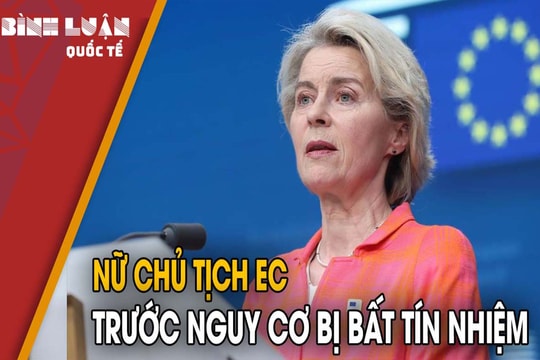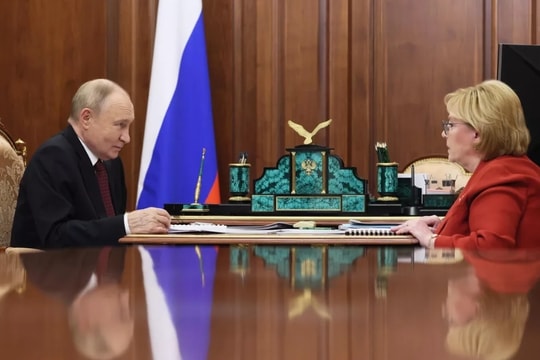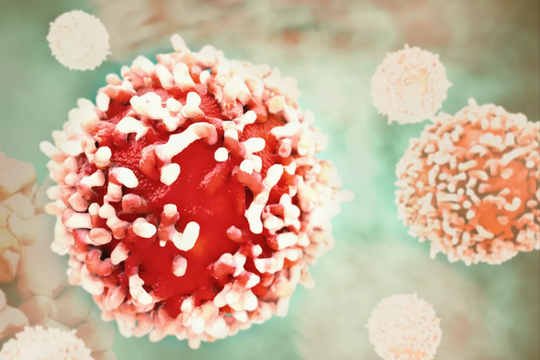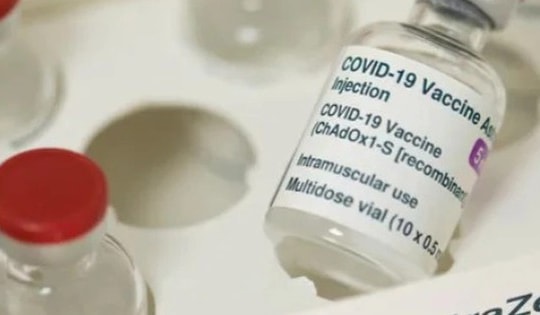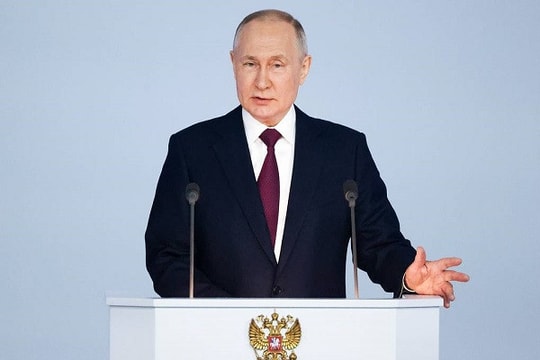The world last week: Countries respond to internal instability
(Baonghean.vn) - In the context of the US needing to quickly develop a vaccine, this country is facing another pressure, when it is full of toxic, false information, and anti-vaccine views of a part of the population; Belarusian politics has fallen into a state of serious instability with the escalation of protests, since the end of the presidential election, with the victory belonging to Mr. Alexander Lukashenko - who has led the country for 26 years. These are notable issues in the past week.
Building trust with vaccines
American researchers are racing against time to develop a Covid-19 vaccine. The campaign, called “work speech,” aims to create a vaccine that is over 90% effective. The vaccine is expected to be available as early as December, first for high-risk people. However, this effort has not been welcomed by some people. American health experts say they must now join another race – the race for vaccine information, because of the increasing misinformation from “anti-vaccine” activists.
 |
| Researchers in the US are testing a drug that adds antibodies to the human body against the virus that causes Covid-19. Photo: AP |
A recent survey conducted by CNN shows that one-third of Americans refuse to get vaccinated against Covid-19, even if it is available in large quantities and at low cost. Anti-vaccine protesters are now more active, spreading their views more widely, such as being determined not to wear masks and not to get tested. They are adding to another fear during the pandemic - fear of vaccines.
In May, a video called “Plandemic” claimed that Covid-19 deaths were exaggerated and that a vaccine could kill millions. The video received more than 7 million views on YouTube before being removed for its unfounded claims. Other bizarre claims included vitamin C being a cure for Covid-19, and the disease being a conspiracy involving philanthropist Bill Gates. Supporters say this is a real debate. The debate over whether to support or oppose vaccines is a matter of life and death.
“Social media posts give the impression of a genuine debate about vaccine safety, which can create a psychological habit that makes people think it is safer to do nothing.”
Anti-vaccine activists have used speed, emotion, and memorable social media stories to gain followers and engagement, while the multi-billion-dollar vaccine campaign has yet to find a way to change public perception.
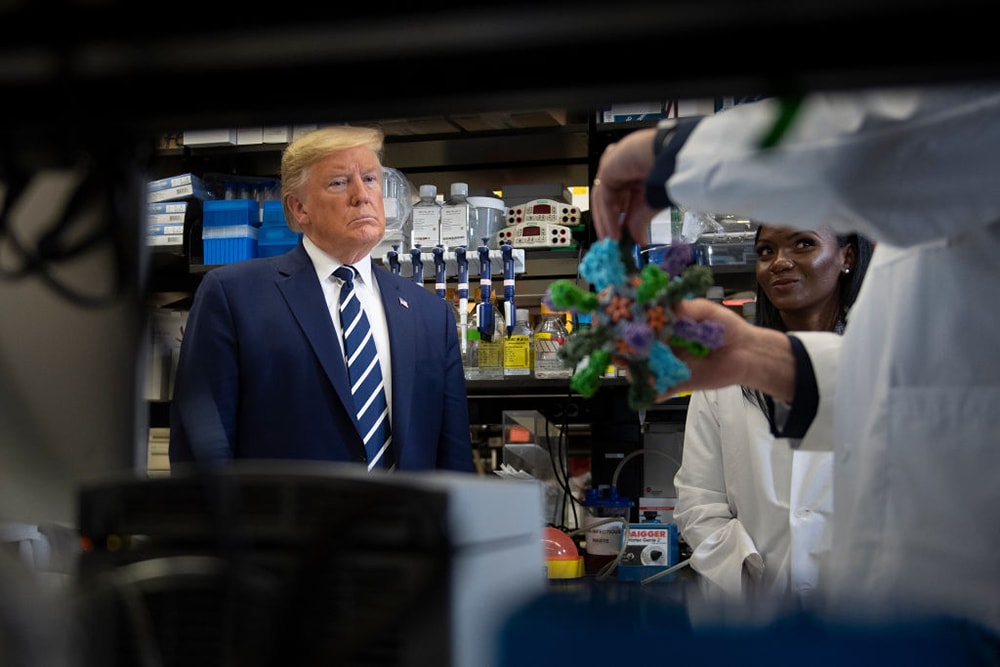 |
| US President Donald Trump visits the National Medical Center's vaccine research institute. Photo: New York Times |
The US government has been criticized for being too slow to respond to misinformation and anti-vaccine sentiment, which has spread across social media. The Centers for Disease Control and Prevention (CDC) is now drawing up plans to boost “vaccine confidence” as part of its efforts to develop a vaccine. Heidi Larson, an anthropologist and head of the Vaccine Confidence Project at the London School of Hygiene and Tropical Medicine, said: “We’d better make every moment count and act now until a vaccine is ready.”
Escalating political instability
Belarus, a country of 9.5 million people, has been rocked by protests since President Lukashenko, who has ruled Belarus for 26 years, was declared the winner of a national election a week ago with 80.08% of the vote. But opposition groups say the election was marred by fraud aimed at keeping Lukashenko in power.
Mr. Lukashenko's government was accused of responding to protests with force, causing public anger against the government; opposition candidates left the country for Lithuania; the European Union warned of sanctions... a series of rapid developments have caused instability in Belarus's political scene, signaling a decline in the prestige of the "dynasty" of President Alexander Lukashenko.
Over the past week, protests have escalated into clashes between police and the public, fueling growing anger against the government. Over 100 police officers have been injured and 28 hospitalized since August 9. Nearly 7,000 protesters have been arrested. The Russian Foreign Ministry has expressed concern about the situation in Belarus, saying there are attempts by outside forces to interfere and destabilize the country.
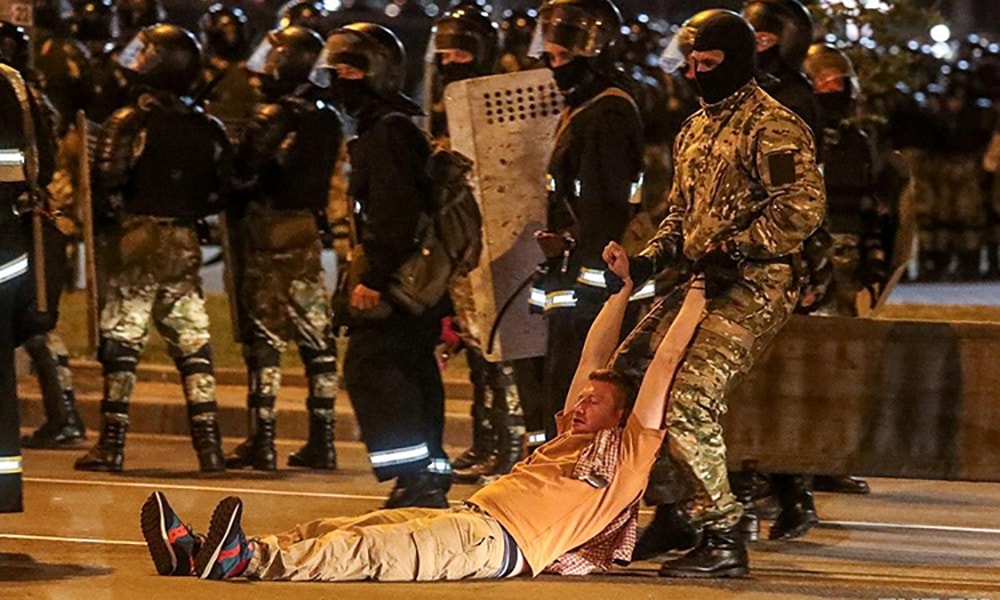 |
| Belarusian police drag a protester away from the site of clashes in the capital Minsk, August 9. Photo: Reuters |
Natalya Kochanova, speaker of the Belarusian Senate and a long-time Lukashenko ally, called on the people on behalf of the president to “stop” and “stop self-destruction”. “A week ago, the presidential elections were held. The people made their choice. But what happened after that was unprecedented, aimed at destroying what we were always proud of – peaceful life,” Kochanova said, calling on everyone “no need to fight”, “no need for war”, because “Minsk is always quiet and calm”.
One of the most striking scenes to emerge after days of violent protests was thousands of peaceful protesters, mostly women, carrying white flowers and balloons, marching through the streets of the capital Minsk. The women formed a “solidarity chain”, demanding an end to the violence and the release of detained protesters. Ribbons, bracelets and white shirts became symbols of the movement, the color representing peace.
Analysts say public anger against Mr. Lukashenko stems from years of worsening economic conditions and the government’s response to the Covid-19 outbreak. Belarus has about 70,000 cases and nearly 600 deaths, the highest average in Europe. But President Lukashenko has resisted lockdowns or restrictions, even urging people to stave off infection by taking saunas and drinking alcohol.
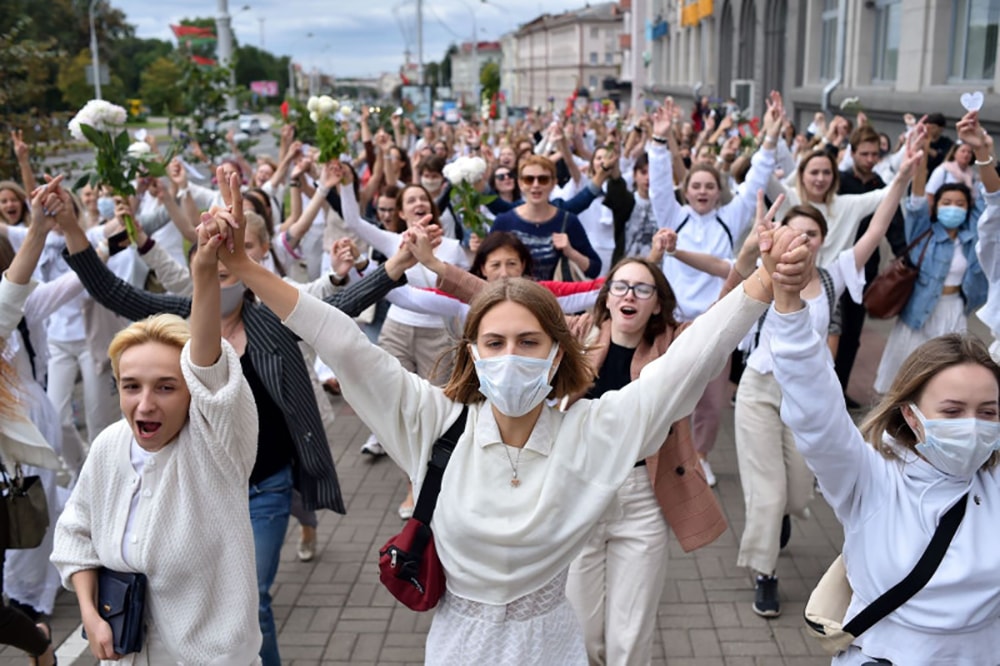 |
| A group of women protesters formed a "solidarity chain" to peacefully protest, calling for an end to violence in the capital Minsk, Belarus. Photo: AFP |
The increasingly serious protests have forced some Belarusian authorities to issue an apology, in stark contrast to previous statements about cracking down on protesters.
“I want to take full responsibility, and sincerely apologize. I did not want any violence.”
European Union foreign ministers also met to propose sanctions against Belarus, but were cautious, not wanting President Lukashenko to move closer to Russia, despite the Belarusian leader's recent tensions with Moscow.
Analysts warn that if he is pushed into a corner, Mr Lukashenko could declare a state of emergency, the equivalent of martial law, although this could lead to the army turning away from his support in quelling the unrest. “That could be a crucial moment,” said Minsk-based analyst Artyom Shraibman. “There is no other way to reverse the process.”

